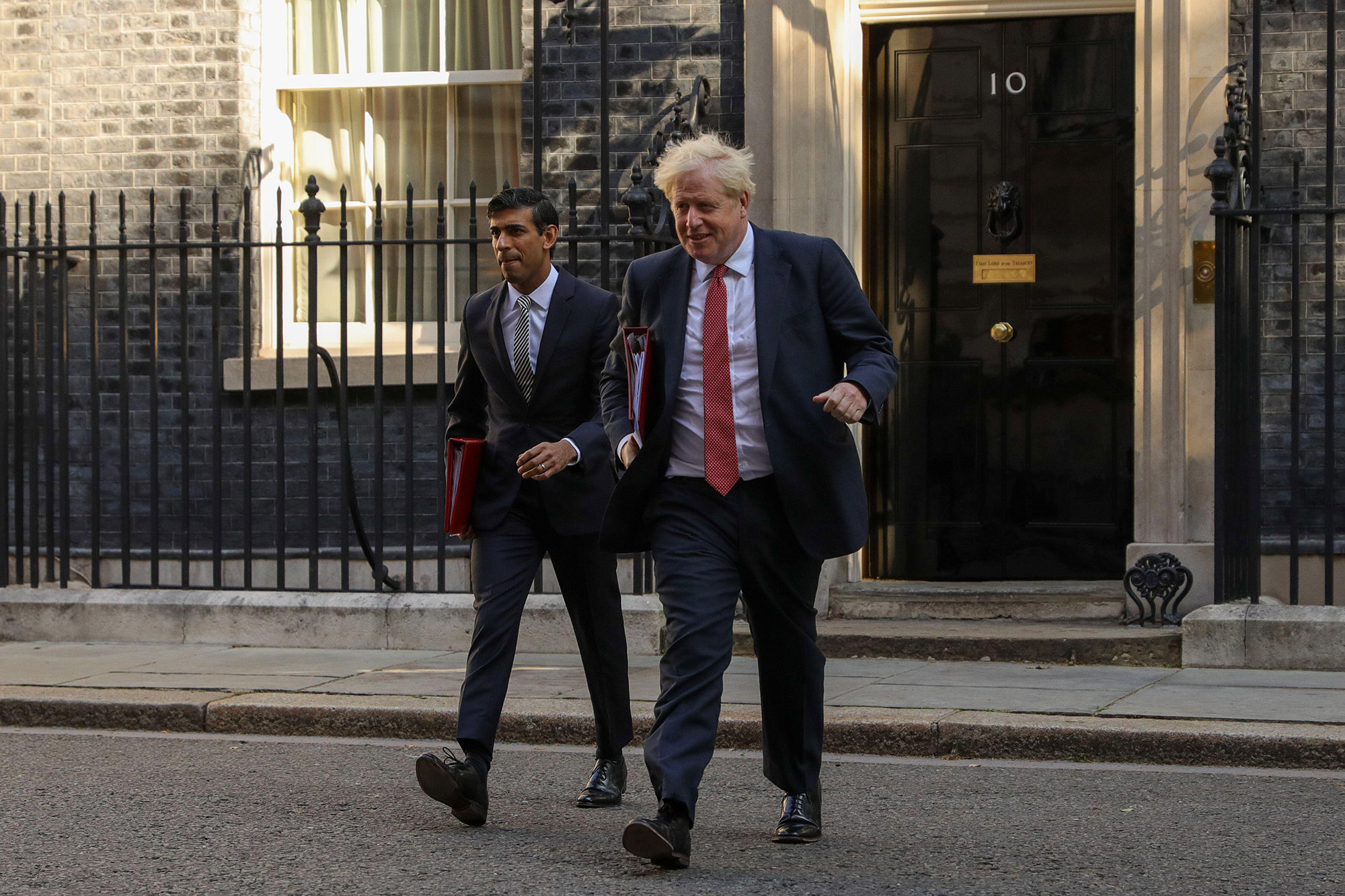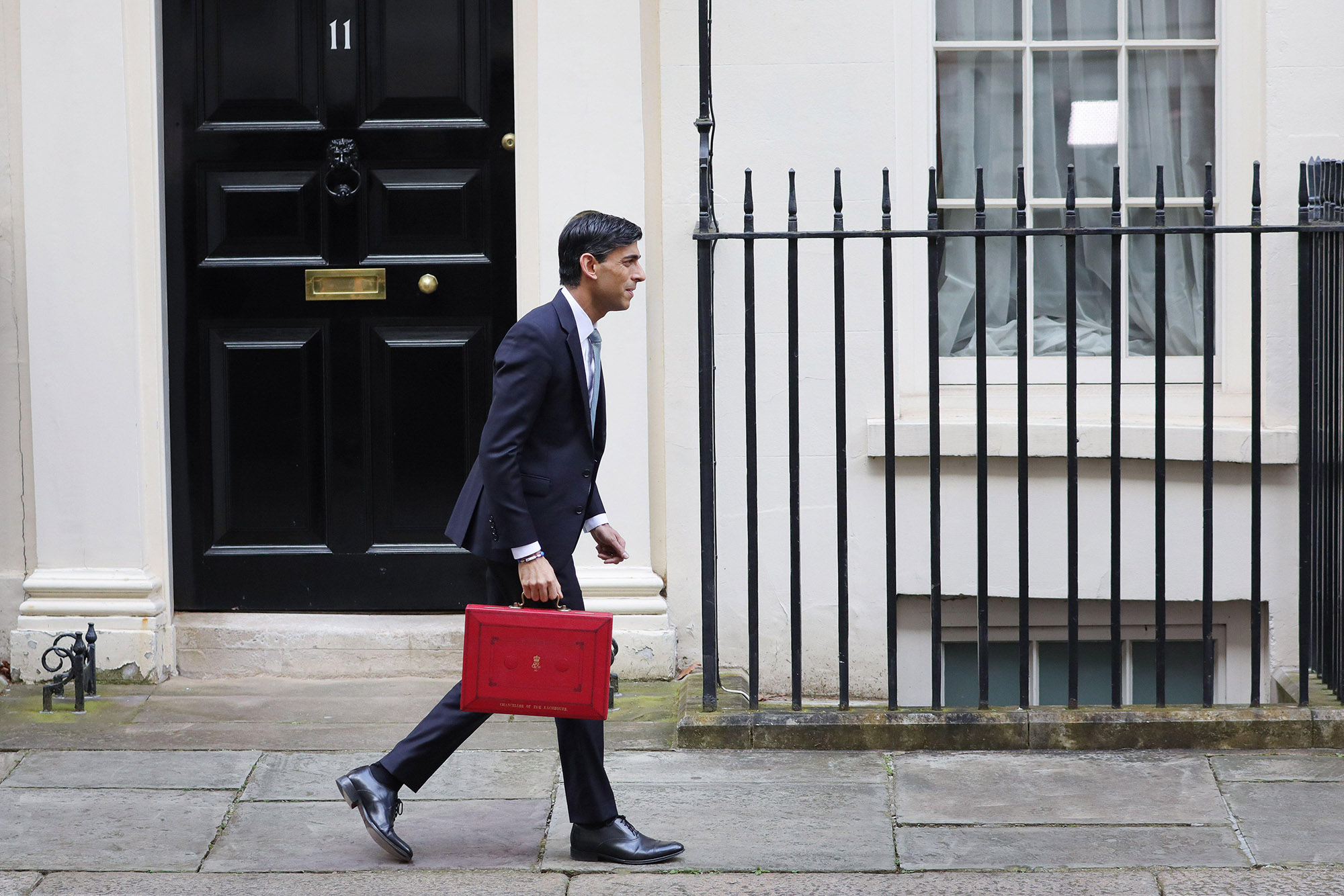Rishi Sunak Faces A Tightrope Walk Of Pleasing Wary Tories And Reversing Austerity With His Budget
Rishi Sunak is to deliver his second Budget as Chancellor along with a three-year spending review this week (Alamy)
7 min read
Rishi Sunak is facing a tough balancing act with this week’s Budget, where he will be hoping to please the public with spending, while keeping his fiscally prudent fans in the Conservative party on side.
Leading economist Paul Johnson, director of the Institute for Fiscal Studies, reckons Rishi might just “pull off that trick”.
He believes having front-loaded the “pain” of paying for pandemic spending in the spring Budget earlier this year, including a massive planned increase to corporation tax, this time around Sunak will be able to present himself as a “small c conservative, responsible Chancellor”, while also claiming he has started “a reversal of austerity”.
“That is the story he's going to want to try and get across: ‘I'm responsible, but because I've taken some hard decisions on taxes, I'm able to give some money to these hard pressed public services’,” Johnson told PoliticsHome.
He said he would be “astounded” if Sunak announced further tax rises this week, having already proposed a controversial increase to National Insurance to pay for social care, and he didn’t expect to see much more spending on the environment either.
“It's been a strange year because what the Prime Minister announced on the health and social care levy in September was bigger than your average Budget in itself,” Johnson continued.
He also found it unusual that announcements on climate change spending had been made already rather than rolled into next week’s budget, which would still have been timed to lead into the forthcoming COP26 climate conference.
“Certainly Gordon Brown would have made sure it was held back for his Budget,” Johnson added.
Allowing Downing Street to lead on climate and care spending, while Sunak was able to claim furlough as his flagship scheme was a savvy move by the Chancellor, Johnson believed.
“The Prime Minister took all the plaudits and the brickbats for [social care]. Quite cleverly Sunak has managed to dodge that one given it was such a big tax rise,” he said.
But there will need to be a solid amount of spending to “cover just a standstill” in services, as many departments like education, justice, local government and transport are still a long way from recovering from the pandemic.
“The painful stuff on the tax side we’ve already seen, so I think this time we'll just find out a bit more about how much pain there's going to be on the spending side” he added.
“Given the pressures it's inconceivable that he won't find some money.”

But the Treasury is believed to have been pushing back even harder than usual against calls for cash from across government.
One minister told PoliticsHome that while they felt the Treasury has always treated other departments like “pondlife", they have become even more "shut off" in the last six months.
Those in the Treasury have also been accused of throwing their weight around, recently making the extraordinary accusation that business secretary Kwasi Kwarteng was “making up” reports that officials were engaged in bailout talks for industries hit by the supply chain issues.
The two departments are at loggerheads once more over how to support energy-intensive industries from the surging gas prices, but it also shows how worried they are about being hit with an “announce to bounce” strategy from ministers looking to secure more funding ahead of such a crucial fiscal event.
Sunak has recently gone to great lengths to reassure the Tory faithful that he is a low-tax Conservative, despite favouring tax over borrowing to pay for pandemic spending, and stated his commitment to eventually cutting taxes.
“I believe in fiscal responsibility, and everyone in this hall does too," Sunak told his adoring audience at Conservative Party Conference earlier this month.
Johnson, who prior to leading the IFS worked at the Treasury, and is also a visiting professor in economics at University College London, said Sunak will “go down in history as a Chancellor who's put up taxes by the record amount”, even if ultimately he doesn’t want to enact the rises.
But from a public perspective, Sunak could still come out on top. Johnson believed he would perhaps be viewed as a Chancellor who is willing to spend money, rather than raise taxes because the increases to corporation tax are “relatively un-painful” to most.

“I think that's the sort of the tightrope he's trying to walk,” Johnson continued.
“He's trying to say ‘look I'm being fiscally responsible here, because I am getting borrowing down, and I'm getting it down so I'm only borrowing to invest, and I'm going to get it down such that debt is going to decrease over time’.
“He definitely wants to be in that fiscally small c conservative, responsible Chancellor mould, but at the same time pull off the trick of increasing spending in those departments.”
Johnson believed Sunak would want to use this budget to say “this is not only the end of austerity, but a reversal of austerity”.
“While what he wants is to be seen as fiscally prudent, I think he wants to be politically clear that austerity is at an end, which is why I think that he will be finding a way to make sure that there is an increase in funding for these unprotected departments.”
But one minister was more pessimistic. They told PoliticsHome that the general feeling about the spending review is: forget Waitrose, "we're going to be shopping in Lidl from now on”.
In a bleak prediction of the nation’s finances, they added that everyone needs to just get used to the fact it's the "end of holidays in Spain, it’s a week away camping at best” for now.
A key issue fuelling such pessimism is the threat of inflation, with predictions it will soar next year, sending interest rates and the cost of borrowing up, and not come back down for months.
Johnson was uncertain how worried the Treasury would be about this prospect, but that likely inflation was a pretty good argument for not continuing with very high levels of borrowing, and that it could also make Sunak wary of promising lots of big public investments.

He said the big lever the government can pull to prevent inflation is keeping public sector pay low, but that such a move would leave the government in a “really difficult position”, especially given private sector wages had risen over the last decade.
“Experienced teachers are paid 8-10% less than they were a decade ago, so to layer another few percent on top of that would be, harsh to say the least,” Johnson continued.
“But equally, if you want to give a signal that you know you want to keep pay and inflation down, then that is a tool that you have.”
Given Boris Johnson has been so clear that the UK must move towards a “high wage, high skill economy”, allowing public sector pay to stagnate could spark fresh rows between No.10 and No.11.
Tensions are already high after the Treasury leaked Sunak’s call to relax travel restrictions, leading to threats from a furious Prime Minister to demote the Chancellor to health secretary.
A new rift threatened to open over green policies after leaked correspondence at the weekend showed the Treasury was warning of serious damage to the UK economy to hit net zero targets.
When the full documents were published this week, Downing Street stressed they had all been signed off jointly with the Treasury, who were said to be on board with the ambitious plans, despite its own review suggesting a need for new taxes or reduced public spending to pay for the country’s rapid transition to net zero.
A government source said the 158-page document is a “clear-eyed” look at how such a transformative set of policies will be enacted, and dismissed suggestions it was too negative - saying it was “all things to all men”.
It remains to be seen if Sunak can do that with the Budget too.
